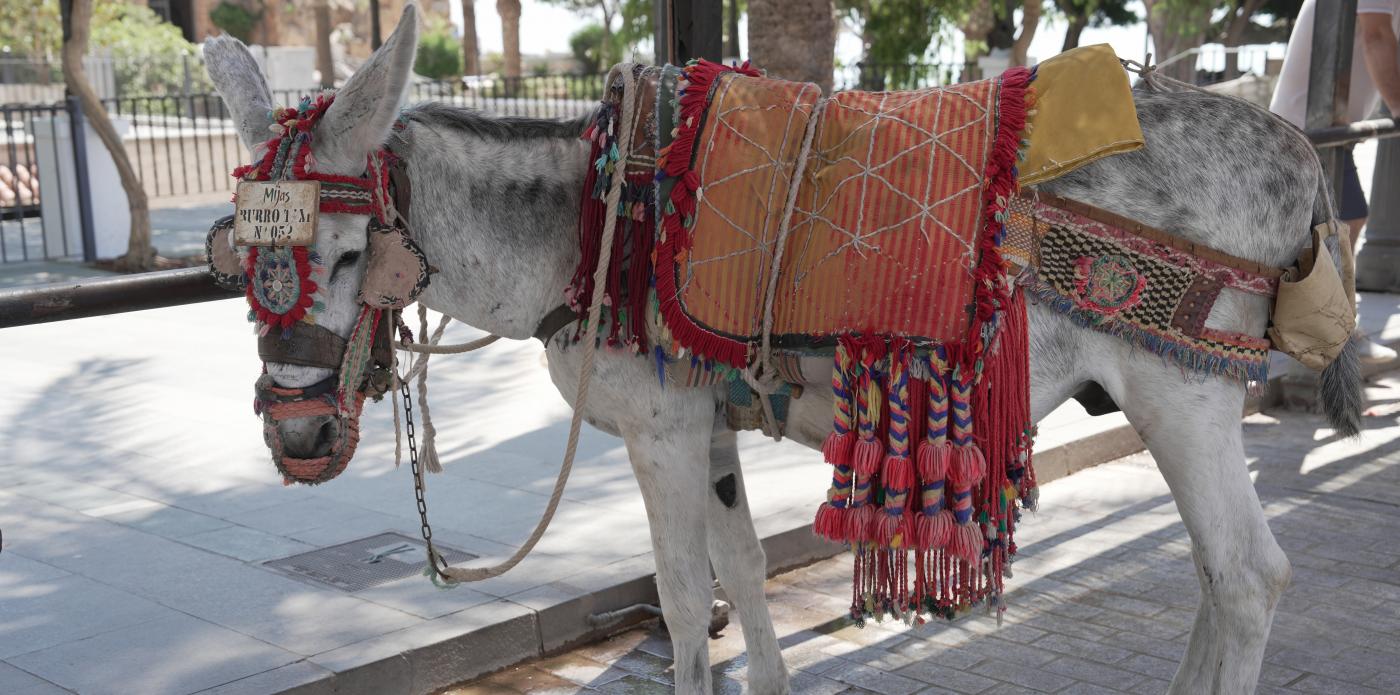The Mijas Town Hall has issued a new decree regarding the service of donkeys and horse-drawn carriages which completes and updates the one published in August 2024.
The document, signed by the mayoress of the municipality, Ana Mata (PP), is based on three main points. The first one recalls the municipal ordinance regulating the Donkey-Taxi, Donkey-Car and Horse Carriage service, approved on the 30th of November 2011 and published in the Official Gazette of Malaga No. 25 of the 7th of February 2012, by virtue of which, in case of public interest and by reasoned agreement, "the route and timetables of the service may be modified". For this reason, and with the aim of preserving the health of the animals, coachmen and muleteers, the decree refers to the fact that, in the event that the Aemet (the State Meteorological Agency in Spain) activates the yellow warning for high temperatures, the service should not be offered between 14:00 and 18:00 hours, while in orange and red warnings the service should not be available while the warning remains active.
In this regard, the decree also echoes the Guide to good practice for the welfare of equidae in public service horse-drawn carriages, published by the General Council of the Spanish College of Veterinarians.

- Uno de los burros taxi de Mijas.
- ARCHIVO
In the second point, the municipal decree refers to the collection of excrement, referring to the stipulations of article 15.5 of the ordinance: "The system of excrement collection at all stops of this service shall be the responsibility of the concessionaires of the same, and its omission shall be punishable as a serious offence, as well as the cleaning of animal excrement during the itinerary". It adds that the waste cannot be deposited in the organic waste bins, in order to contribute to maintaining these points in optimal hygienic-sanitary conditions. For this reason, it recommends the use of preventive collection systems attached to the animal to prevent droppings from falling to the ground, while recalling that failure to comply with this obligation constitutes a serious offence, punishable by a fine of 750 to 1,500 euros.
Finally, it is recommended that the rope by which the animals are tied at stops and rest areas, as well as while they are tied to the carriage during their journeys, should be at least 50 centimetres long in order to guarantee "a minimum standard of freedom of movement and welfare for the animals".
The muleteers and coachmen have been informed of all of the above, prior to the publication of the aforementioned decree.
With all this, the Mijas Town Hall, in a press release, states that they are once again demonstrating their "commitment to the safeguarding and welfare of muleteers, coachmen and the animals".
Share it with this link: https://mijasint.com/?a=34052











